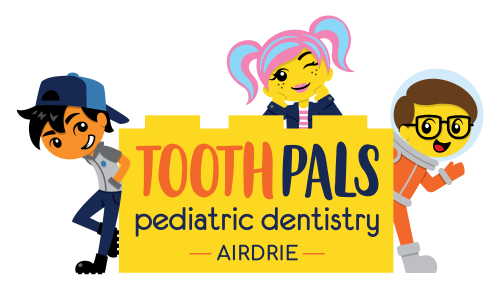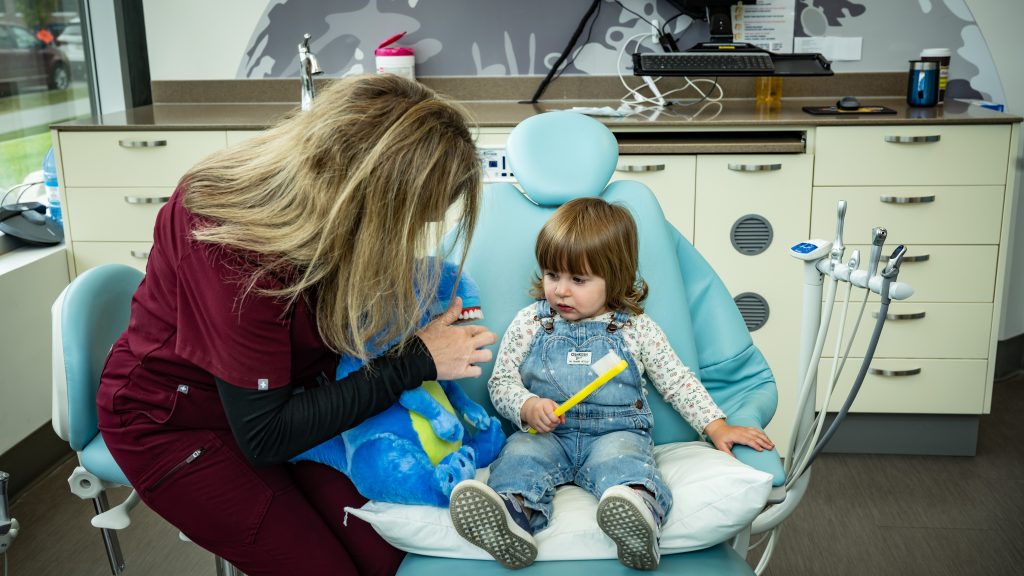Taking care of your child’s teeth is difficult in itself, but when your child has special needs, daily tasks such as brushing your teeth can seem like a huge mission.
Some children do not like being touched, some hate any new sensation, and/or some children cannot remain still for any length of time.
However, even adults like to avoid anything that is an unpleasant experience! You would like to protect their smile, but every effort seems to be a losing battle.
We understand the exasperation, frustration, guilt and worry that can accompany this situation, which is why a customized solution like pediatric dentistry in Airdrie can change everything.
Let’s see how you can make at-home dental care smoother, safer, and more successful.
Understanding Oral Care Challenges for Special Needs Children
Every child is unique, and children with sensory, developmental, or behavioural challenges often face even greater difficulties with oral care routines.
Some common oral care challenges for special needs children include:
- They might have hypersensitivity to textures or tastes
- A strong gag reflex
- They would fear a toothbrush or toothpaste.
- Difficulty in staying focused or seated
- Trouble understanding the brushing process
Recognizing these challenges is the first step to developing a routine that can accommodate everyone’s differences.
Choosing the Best Toothbrush for Special Needs Kids
Finding the best toothbrush for special needs kids depends on your child’s specific needs.
Here are some options to explore:
- Electric toothbrushes: These kinds of toothbrushes have timers, gentle vibrations, and can clean faster with less effort.
- Three-sided brushes: These surround the tooth and clean multiple surfaces at once, perfect for kids who struggle with coordination or time.
- Finger brushes: Gentle and ideal for children sensitive to standard bristles.
- Adaptive handles or grips: Easier for children with limited motor control to hold.
Soft bristles and a small brush head are generally the safest and most comfortable choice for any child.
Brushing Techniques for Children with Special Needs
Using the right approach matters as much as using the right tools. Effective brushing techniques for children with special needs include:
- Positioning: Sit behind your child, gently supporting their head and body.
- Use visuals: Show them pictures or videos to explain brushing in a fun and familiar way.
- Start slow: Let your child hold the brush or try brushing a doll first.
- Make it a game: Use songs, timers, or rewards to encourage participation.
- Try desensitization: Slowly introduce brushing by touching the lips, cheeks, and teeth with the toothbrush over several days.
A calm, predictable routine builds trust and reduces resistance over time.
Managing Dental Anxiety in Special Needs Children
Managing dental anxiety in special needs children begins at home. If they fear brushing, they’ll fear dental visits too.
To reduce anxiety:
- Keep routines consistent
- Avoid surprises; use visual schedules or countdowns
- Offer choices (e.g., which brush or toothpaste flavour)
- Praise small efforts, even if brushing isn’t perfect
- At-home confidence leads to better cooperation at the dental clinic, too.
Tips from Experts in Dentistry for Children with Special Needs
Professionals who specialize in dentistry for children with special needs understand the unique behavioral, sensory, and communication needs of their patients.
Here are expert-backed dental care tips for parents of special needs kids:
- Start early: Introduce oral care when the first tooth appears
- Use fluoride toothpaste in small amounts (about the size of a grain of rice)
- Don’t skip flossing; use floss picks or water flossers if needed
- Limit sugary snacks and drinks to protect enamel
- Model brushing behavior by brushing your teeth beside your child
Regular visits to a specialist help reinforce healthy habits at home and allow for early intervention if problems arise.
When and How to Visit a Pediatric Dentist
Once a home routine is in place, it’s time to establish a relationship with a pediatric dentist near you. Choose a dentist who has experience in treating children with special needs.
These clinics often provide:
- Quiet rooms or sensory-friendly setups
- Visual guides to explain what happens during a visit
- Extra time for appointments to reduce stress
- Communication support, like visual aids or sign language
Let the staff know your child’s needs in advance so they can prepare appropriately.
Creating a Safe and Supportive Environment at Home
Oral care shouldn’t be a rushed task. Make the bathroom a calm, welcoming space.
- Play soft music
- Use visual timers
- Decorate with favorite colors or characters
- Make brushing time a bonding moment instead of a battle.
Encourage independence where possible. Even if your child only brushes for a few seconds, it’s a step in the right direction. Over time, those seconds add up to habits that last a lifetime.
Poor Oral Care Can Spiral Fast
Delaying proper care can lead to cavities, gum infections, or emergency treatments that are more traumatic than daily brushing. Early neglect could mean pain, fear, and even hospitalization. The risks are real, but so are the solutions.
Little Habits Shape Lifelong Health.
Book an appointment today at Toothpals Pediatric Dentistry and let your child’s smile grow strong with the care it deserves.

